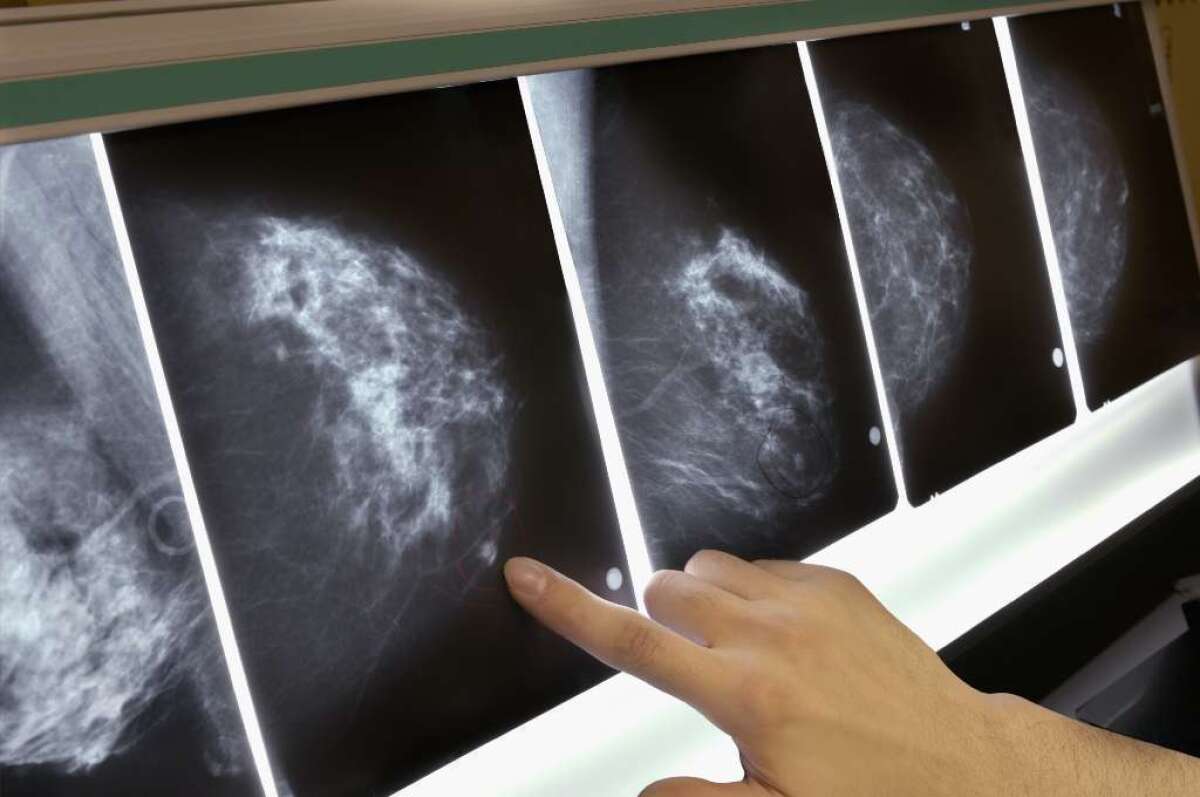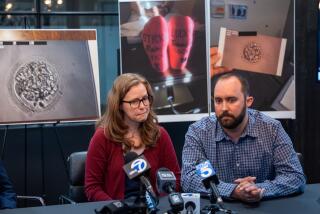Why genetic patents are good for patients [Blowback]

In their April 12 Op-Ed article “Who should own DNA? All of us,” Marcy Darnovsky and Karuna Jaggar write about Myriad’s patents on BRCA1 and BRCA2, the so-called breast cancer genes (which were under review Monday at the U.S. Supreme Court), as if they have served little purpose in the development of tests that have helped more than 1 million women to understand their risks of breast cancer and ovarian cancer.
The patents do not cover human genes from anyone’s body. As a federal appeals court noted, the patents protect isolated molecules of DNA, which have long been patent eligible, and diagnostic methods of identifying mutations in those sequences. “Isolated” means that researchers defined the molecule and separated it from the complex of genetic material that accompanies it in the body, or synthetically created the molecule in a laboratory. In this case, Myriad took a a strand of DNA (which, if unfurled, would be six feet long) and identified a sequence that could fit on the head of a pin. It is this isolated, tiny yet crucial piece of information, and not DNA, that Myriad has patented.
As we said in our Supreme Court brief, these molecules were “never available to the world until Myriad’s scientists applied their inventive faculties to a previously undistinguished mass of genetic matter. This was the product of creative, human ingenuity.”
The government has issued thousands of patents over many years involving isolated genetic material. Many more patents protect products derived from natural material, such as ours. Laboratories routinely turn elements found in nature into innovative remedies and medical prescriptions that are patented.
Without our patents, our tests could not have been developed. Our research cost more than $500 million. It took 17 years for us to get to the break-even point.
Our tests are faster and more reliable than tests in Europe, where patent protection is less robust. Our tests are accessible. Some 95% of women with risk factors for cancer have insurance that covers most of the cost of our test. Out-of-pocket expenses for the patient average $100. We offer the test for free to women who cannot afford it.
And our patents have promoted research. Since we helped identify the genes, 18,000 scientists have studied them and published more than 10,000 research papers.
The issue before the Supreme Court is not about Myriad. This is about the consequences to the life sciences -- and for innovation. If isolated genetic materials cannot be patented, we’ll see a loss of cutting-edge services with enormous benefit to society.
ALSO:
How not to say the wrong thing
Rolling back the tax breaks for supersized nest eggs
Dr. Kermit Gosnell abortion case: Why no national media spotlight?
Peter D. Meldrum is the president and chief executive of Salt Lake City-based Myriad Genetics Inc.
If you would like to write a full-length response to a recent Times article, editorial or Op-Ed and would like to participate in Blowback, here are our FAQs and submission policy.
More to Read
A cure for the common opinion
Get thought-provoking perspectives with our weekly newsletter.
You may occasionally receive promotional content from the Los Angeles Times.






